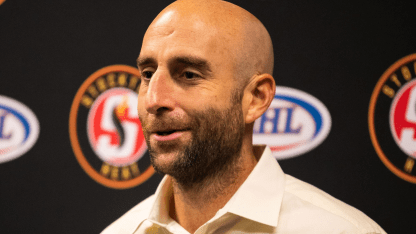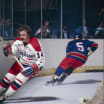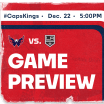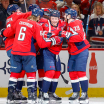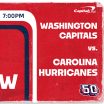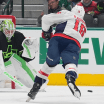Less than a month after Spencer Carbery was named as the 20th head coach in Capitals' franchise history, the team announced another addition to its coaching staff earlier this week. Former WHL and AHL coach Mitch Love joins the Washington staff for the upcoming season, ascending to the NHL level for the first time. The 39-year-old Love, a native of Quesnel, B.C., will work primarily with the Caps' blueline corps.
All You Need is Love
Caps add two-time Pieri Award winner Mitch Love to their youthful coaching staff
